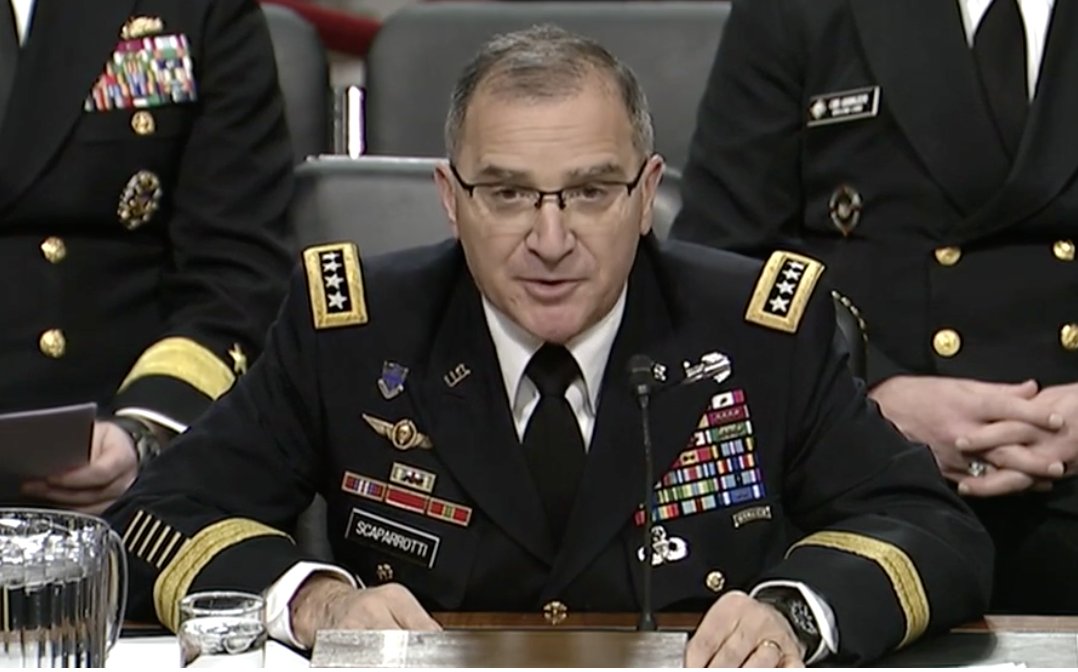
Gen. Curtis Scaparrotti, commander of US European Command and Supreme Allied Commander Europe, testifies before the Senate Armed Services Committee on Thursday. EUCOM Twitter photo?
The United States must continue to modernize its force because Russia is on pace to “challenge” it in “almost every domain” by 2025, said Army Gen. Curtis Scaparrotti, head of US European Command and Supreme Allied Commander Europe.
Scaparrotti acknowledged he does not have all the forces needed in Europe today to counter an increasingly aggressive Russia, which has steadily been exerting its influence across the continent. He called the $6.5 billion requested in the Defense Department’s Fiscal 2019 budget for the European Deterrence Initiative—a nearly $2 billion increase from Fiscal 2018—“foundational funding,” telling members of the Senate Armed Services Committee on Thursday, “I could not do my mission without EDI and the increase.”
The majority of the EDI funding supports the pre-placement of US Army materiel, as well as USAF projects such as flight line improvements at bases in Germany, Norway, Slovakia, and the United Kingdom. Scaparrotti said it will help US European Command “establish the full posture” it needs.
“Russia is carrying out a campaign of destabilization” in Europe, said Scaparrotti, noting the country continues to advance its “asymmetric capabilities” employing the “full spectrum of both military and nonmilitary power. Russia’s strategy, he said, is to “use activities that fall below the level of conflict,” undermining its opponents “without firing a shot.”
Czech Gen. Petr Pavel, speaking to reporters in Washington on Wednesday, said Russia is conducting information warfare, which falls “well below the threshold of conflict.” He said this “new reality” is something NATO must “learn from and adjust to.” That’s why the alliance must develop a cyber framework that works with all major actors in cyberspace, including Russia and China.
Despite Russia’s increased presence in Europe, Pavel cautioned reporters about using the word “aggression,” especially as it relates to Russia in the Baltics.
“We see increased tension in the region, but there has been no violation of Baltic countries, not even in the airspace,” said Pavel. “All we have in the region is increased military presence, more flights of long-range aviation, more use of intelligence.”
Scaparrotti, however, warned that the United States must refocus its attention on the Balkans, where Russia’s influence, especially in Serbia, is significant.
“Russia is involved in just about every aspect of Europe in one way or another,” said Scaparrotti. “I’m concerned about the Balkans. We’ve been able to keep stability there. We’ve been able to work on democratic governments and reinforce that, but Russia’s at work in the Balkans and we’ve taken our eye off the area.”
If the US doesn’t increase its diplomacy in the region, Scaparrotti predicted “that’s an area we could have problems with in the future.”